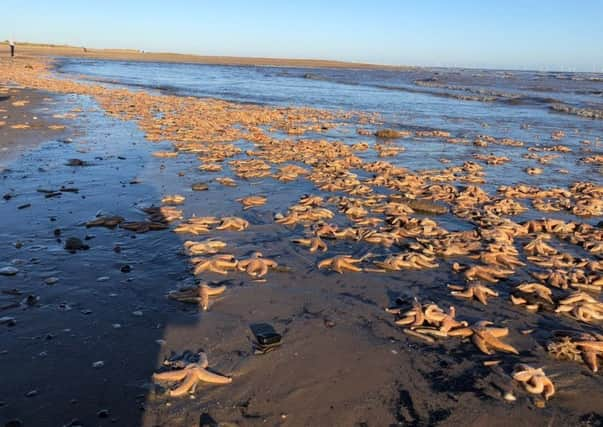Warning to Boston residents not to touch '˜potentially lethal' toxic starfish


Boston Borough Council is urging people to avoid handling starfish - and for anglers to throw poisonous fish such as the Common Dab back into the sea.
A spokeman for the authority said: “The risk from dead fish and other aquatic animals which might contain a poisonous toxin is low risk, but the Eastern Inshore Fisheries and Conservation Authority, is still urging caution.”
Advertisement
Hide AdAdvertisement
Hide AdTwo dogs - one in Norfolk and one in Suffolk - are thought to have died from the toxin after finding dead fish on beaches.


Further testing has been carried out by the Centre for Environment, Fisheries and Aquaculture Science (Cefas) - and crabs, whelks and shrimps have shown either very low levels of PSP (Paralytic Shellfish Poisoning) toxins or no toxins at all.
However, further tests on starfish samples have found extremely high levels of toxins. PSP toxins are produced naturally by certain species of microscopic algae. The council says the source of the contamination is still unknown and is being investigated.
The spokesman added: “It is thought that the contaminated animals were washed up on beaches during winter storms and are likely to have now been washed back into the sea. Whilst it is thought unlikely that starfish with high levels of PSP toxins pose a health risk to humans through handling them, as a precaution people should refrain from handling any starfish they might find on the beach.”
Advertisement
Hide AdAdvertisement
Hide AdSea anglers, who often fish for Dab at this time of year, are advised to return their catch to the sea and avoid retaining it for consumption as a precautionary measure.


The CEO of Eastern IFCA, Julian Gregory, said: “Any risk is only because of ingestion so our advice to the public remains the same. There is a low level of risk to beach users and their pets but as a precaution it is suggested that dogs are kept under close control, on leads or muzzled and people should avoid handling starfish. There is no risk to people or pets from seawater.”
Owners of pets that have become ill after consuming items on a beach are asked to report the matter to the district or borough council for the area where the incident occurred.